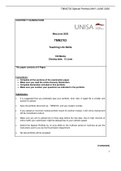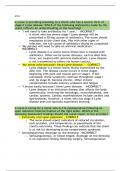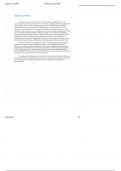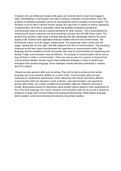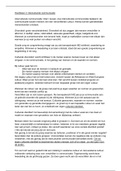Part I: The International Financial Environment
Chapter 1: Multinational financial management: an overview
Goal of the MNC
The focus of this text is on MNCs that are quoted on the world’s stock exchange. They will almost
always have numerous wholly owned foreign subsidiaries. The commonly accepted goal of such an
MNC is to maximize shareholder wealth. Shareholder influence is a major difference between MNCs:
- Continental Europe has the blockholder system: fewer, larger stakeholders in companies
with corporate governance laws that seek to protect creditors and employees.
- The UK-US market based-approach has far more dispersed ownership and much greater
emphasis on shareholders’ rights.
In offering greater non-shareholder participation, the Continental system gives greater emphasis on
long-term profitability, and this is borne out by the generally longer payback periods of Continental
European companies compared to the UK.
Conflicts with the MNC goal
The agency relationship exists whenever someone (the principal) contracts with someone else (the
agent) to take actions behalf of the principal and represent the principal’s interests. There is an
agency problem when the agent’s and principal’s incentives are not aligned. The agency problem
comes with costs to align the incentives of the manager:
- Direct costs
– Monitoring
- Indirect costs
– Free Cash Flow Hypothesis. Which means that if the manager has too much cash
available, then he will use the money for self-interest.
– Managers decide in favor of other stakeholders. The manager cares only about the
subsidiary and not about the whole company.
- Corporate control
– Compensation schemes aligned with shareholder interest
– Hostile takeover threat
– Investor monitoring
It has often been argued that managers of a firm may make decisions that conflict with the firm’s
goal to maximize shareholder wealth. When a corporation’s shareholders differ from its managers, a
conflict of goal can exist. This conflict is often referred to as the agency problem. The costs of
ensuring that managers maximize shareholder wealth (agency costs) are normally larger for MNCs
than for purely domestic firms for several reasons:
1. Monitoring distant managers:
– MNCS with subsidiaries scattered around the world may experience larger agency
problems because monitoring managers of distant subsidiaries in foreign countries is
more difficult.
2. Culture
– Foreign subsidiary managers raised in different cultures may treat the goal of its
MNC in different way from that intended by the senior management.
3. Communication
– The sheer size of the larger MNCs can also create communication problems.
4. Complexity of operations
– The complexity of operations may result in decisions for foreign subsidiaries of the
MNCs that are inconsistent with maximizing shareholder wealth.






